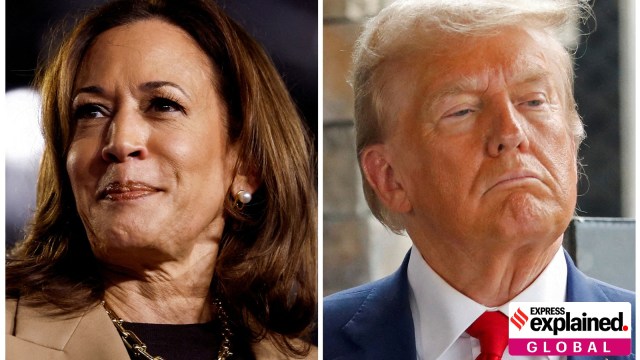With Donald Trump winning the US presidential election, India is closely observing the developments. The relationship with the US is vital for India’s interests in trade, security, and geopolitics.

Regardless of whether Trump or Harris had won, the Indian government would have faced a mix of opportunities and challenges to navigate.
Story continues below this ad
The China challenge for US, India
After decades of being ambiguous about how to deal with China’s rise — including former President Barack Obama’s “strategic Asia Pacific pivot” to restrain Beijing — the US administration under Donald Trump framed China as a “threat” and a strategic rival for the first time. No US President before him had explicitly framed Beijing as a strategic threat.
India, which shares about 3,488 kms of disputed border with China, has borne the brunt of Beijing’s strong-arm tactics for the last six decades, especially after the 1962 war and more recently with the border standoff.
A Trump win, therefore, is expected to give a fillip to Trump 1.0’s policy of confronting China’s aggressive behaviour and forming a coalition of like-minded countries — like the Quad grouping, which was formed when Trump was in office in 2017.
A Kamala Harris win is expected to carry on with the Joe Biden administration policy. Biden, within a few months of assuming office in 2020, elevated the Quad grouping to a leaders’ level format. However, last year, Biden also said that the US was not looking to “decouple” from China, but “de-risk and diversify our relationship with China.”
Immigration
Story continues below this ad
Immigration has been a political hot-button issue in the US Presidential campaign, rising in pitch steadily since the first Trump presidency. Trump 2.0 is expected to double down on the promise to crack down on illegal immigration to the US.
And while the Trump campaign portrays Harris as allowing hordes of migrants to cross the US borders illegally, she herself has spoken quite strongly against illegal immigration. In the last one year, the US has sent back about 1,100 illegal immigrants from India.
New Delhi has maintained that they do not support illegal immigration from India. But domestically, if plane-loads of Indians start coming back from the US, it will pose a challenge of optics for the Indian government.
Tariffs
Trump has been quite vocal against India placing high tariffs on American products. He had openly asked India to reduce tariffs on Harley Davidson bikes.
Story continues below this ad
A Trump 2.0, with Vance as the VP, is expected to push for an America-first strategy that will penalise countries that put high taxes on American products and services. While a major impact will be on China, India will be a casualty too, and Delhi will need all the negotiating skills to maneuver through a potential diplomatic landmine.
Harris’ campaign has given little details about their approach, but the Biden administration had largely continued with tariffs put in place under Trump and announced new ones on “strategic sectors” such as semiconductors and electric vehicles.
Human rights
Trump has been non-commentative about the human rights record in India or elsewhere, something viewed with appreciation in India.
After the abrogation of Article 370 in Jammu and Kashmir or the Pulwama terror attacks, Trump had taken a very “right to self-defence” approach, much to New Delhi’s relief.
Story continues below this ad
However, Harris — more vocal about democracy and human rights — had told Prime Minister Narendra Modi in 2021 that “it is imperative that we defend democratic principles and institutions within our respective countries.” This was seen by many as a gentle nudge by Harris on the issue of democracy, a theme closer to the heart of the Democratic establishment than the Trump administration.








































